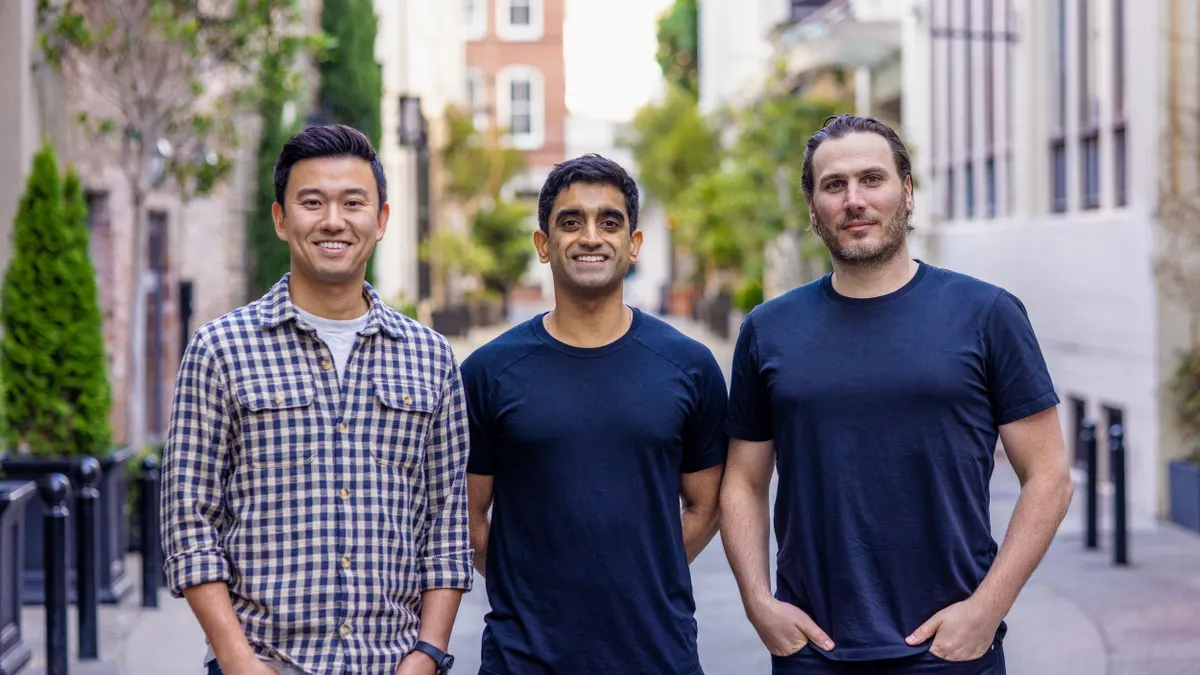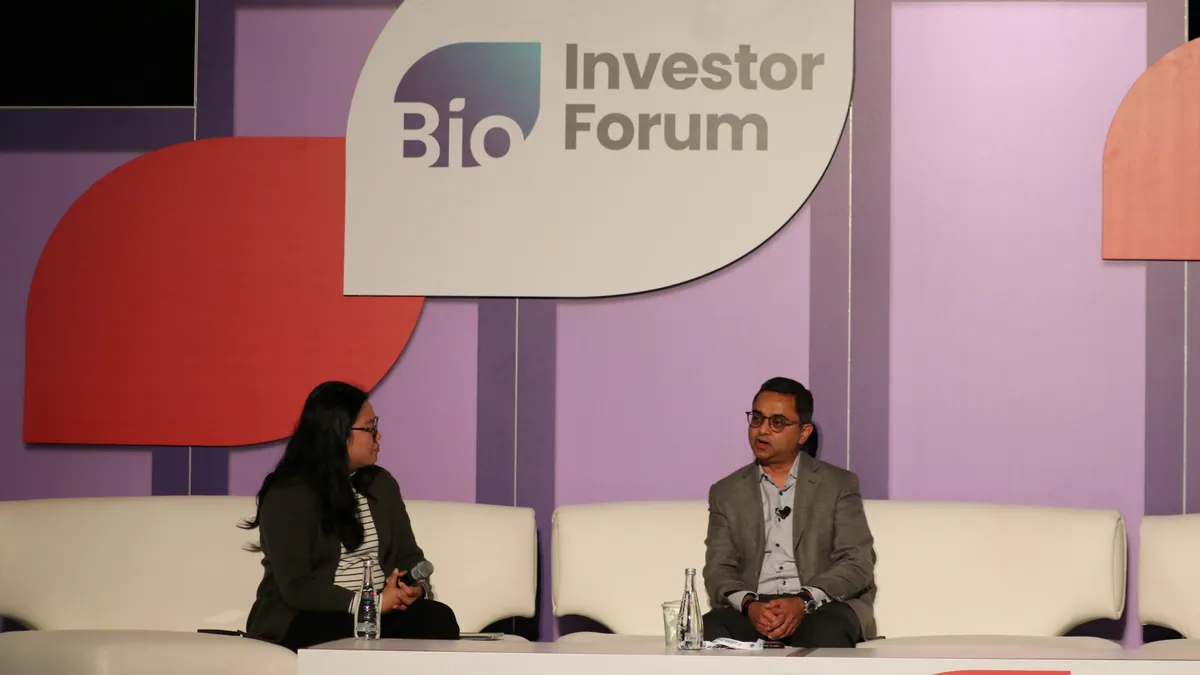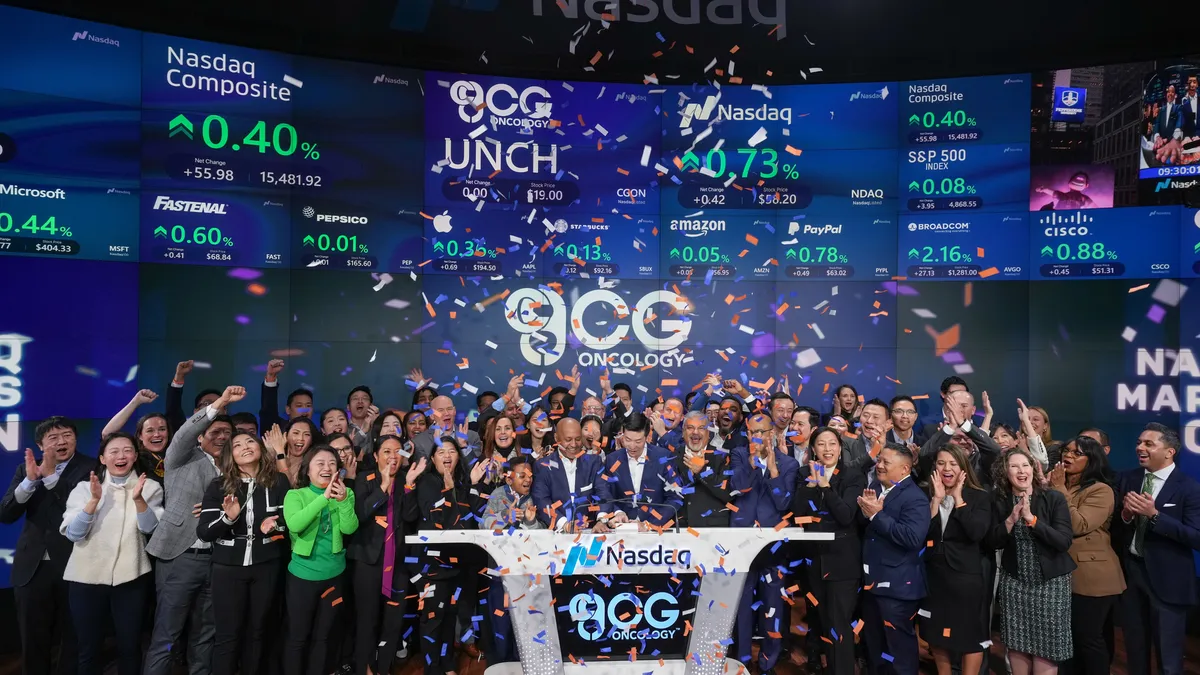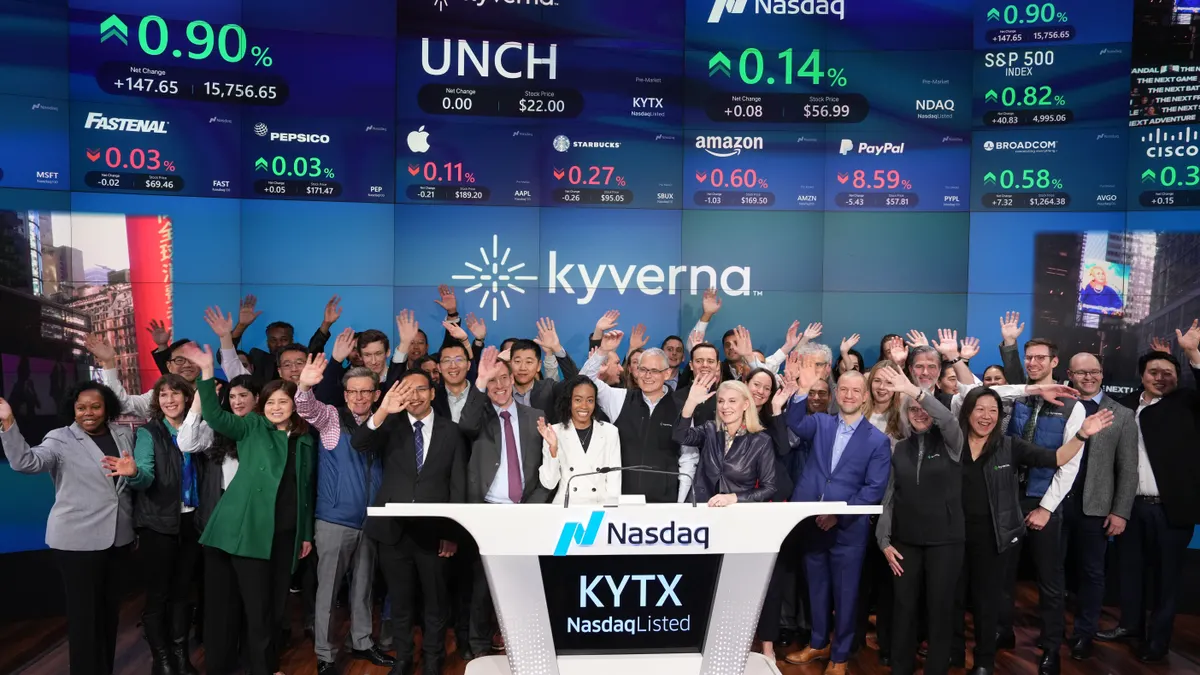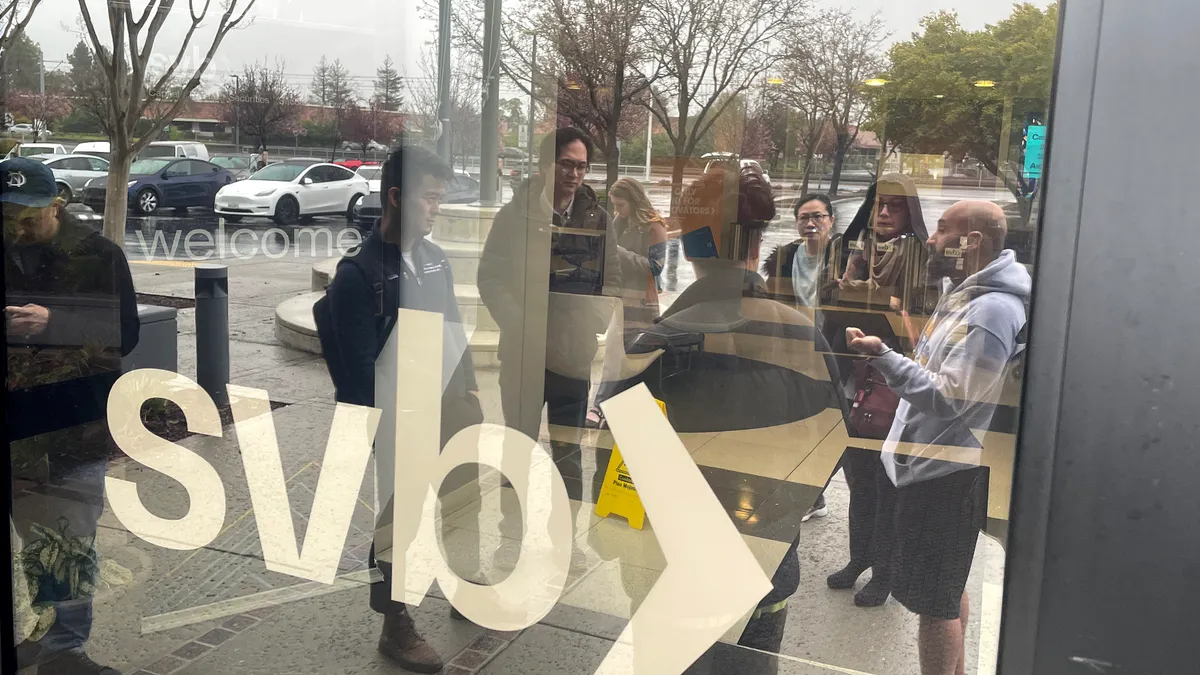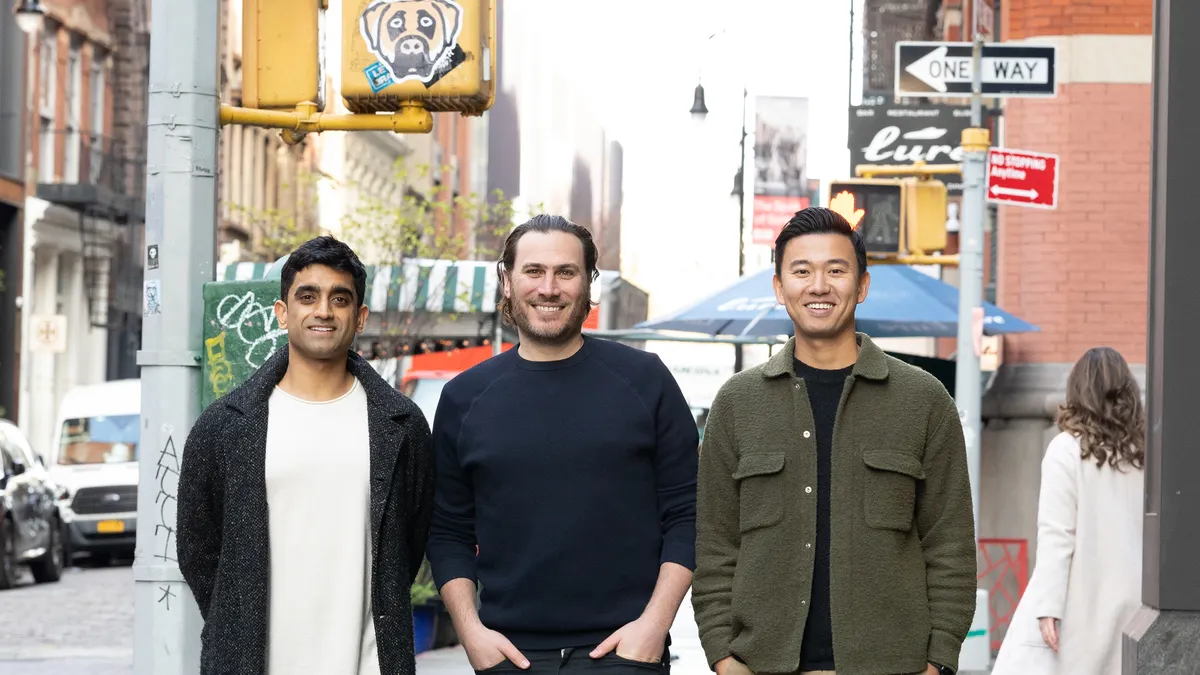Kevin Parker is an expert in genomics, immuno-oncology and computational biology. A Ph.D. scientist from Stanford University, he has helped author research in prestigious journals like Science, Nature Medicine and Cell.
But two years ago, when Parker was working with colleagues on an idea for a new biotechnology company, he found himself in unfamiliar territory. Skilled at navigating thorny scientific challenges, Parker was stumped by the process of building a startup.
“The logistics of getting a company started — incorporating it, getting all the legal affairs in place, getting a bank account set up, getting health insurance, like the very nitty gritty of it … there’s no book on how to do that,” said Parker.
Launching a biotech wasn’t always on his radar. The head of his laboratory, physician-scientist Howard Chang, encouraged students to explore many career paths — even ones in industry, spurring Parker to take an internship at drug startup Maze Therapeutics. There, he got a glimpse of academia’s constraints.
“It’s really focused on analyzing data, publishing it and moving onto the next one, while the industry is focused on translating those ideas into how it impacts a person,” said Parker, who in 2020 founded cancer drugmaker Cartography Biosciences.

Making the jump between fields wasn’t easy, however, and he considers himself fortunate to have done it successfully. A new generation of biotech leaders, Parker among them, hopes to make that transition easier, filling in for future entrepreneurs the gaps where they felt lost. Frustrated with how drug startups are usually formed, they are not only creating their own, but building a new kind of community, too.
“There is a wellspring of grassroots energy. They’re taking all the knowledge accumulated and spreading it,” said Tony Kulesa, a principal at venture firm Pillar VC who has become a prominent voice in this loose collection of executives, scientists and students.
To Kulesa, Parker and others like them, the moneyed venture capital firms that incubate most new biotechs aren't forming startups quickly enough to harness that energy, leaving many aspiring entrepreneurs without a path forward.
Some also say traditional investors are too focused on their own formulas and objectives to give room to unorthodox ideas. Often, venture investors will install an executive or seasoned entrepreneur in new drug companies they’ve started around already-vetted research. “For an investment firm, the product is the company,” said Roivant Sciences CEO Matt Gline in a recent interview with BioPharma Dive.
To be sure, the VC model has produced many successful biotechs as well as new medicines. "How these companies are created has been turned cookie cutter at least in some shops," said Maha Katabi, a general partner at Sofinnova Investments, "but it's certainly not the reality of the vast majority of how this industry has developed."
Some entrepreneurs argue, though, that researchers with great ideas who want to retain control can be shut out. Using terms like “founder-led biotech” and “techbio,” this new generation sees themselves growing a movement to encourage and support more academics launching drug companies. In the process, they hope to broaden the industry’s borders beyond its well-trodden hubs of Boston, San Francisco and San Diego.
An open-source approach
The growth of this community was on display last fall, when hundreds of scientists and entrepreneurs attended a virtual event dubbed the “Founder-led Biotech Summit.” Among the sessions were panels such as “New Funding and Organizational Models” and “Pathways to Entrepreneurship.”
It was the second time the event had been held, said Kulesa, who started the summit through Pillar VC, a firm that provides startups with seed capital. More than 3,500 people registered for the summit, which also included sessions on areas that receive relatively less venture investment like reproductive health.
Attendees described how they stumbled onto the idea of launching their own companies partway through their forays in academia. “You just came to class and were like, ‘I just started a company,’” Kulesa joked with former Massachusetts Institute of Technology classmate and Amber Bio founder Jacob Borrajo, during one of the summit’s sessions. “And I was like, ‘You can do that? That’s wild.’”
For many, the draw of this community appears to be its boundlessness. Rather than growing out of prestigious universities and labs in Boston and San Francisco, the founder-led biotech network has been built on Zooms, virtual events and Twitter. The aim is to help people from all over connect with like-minded entrepreneurs and investors.
“There’s a lot of great science and a lot of latent demand from people that previously weren’t a part of the networks and culture of startups, and are now trying to enter that,” Kulesa said.

Take San Antonio, Texas-based biotech entrepreneur Guillermo Vela. A former Johns Hopkins University cancer and stem cell researcher, Vela returned to his home state to pursue a startup career. Building his cancer drug discovery company, NeuScience, involved many cold calls and emails. The executives and investors who answered often connected Vela with others in the industry.
Having received a helping hand, Vela is now active on social media and other forums, trying to pass along knowledge and “demystify” the company creation process.
“There’s no denying this is a sector where you do have to have some experience, and there’s a lot of know-how you can only gain through the years,” he said. “But there’s a lot of secret sauce, secret knowledge that isn’t published because there’s no real, good mechanism.”
Groups like Alix Ventures’ BIOS community and Nucleate, a mentorship community for researchers, college students and entrepreneurs, are trying to share some of that know-how.
Nucleate has even gained the attention of established drugmakers, including Genentech and Alnylam Pharmaceuticals, the latter of which in July announced a partnership with the graduate student-led group. And Nucleate, which is in part run by one of Kulesa’s colleagues, Michael Retchin, has also created a venture fellowship with support from Pillar VC.
From Retchin’s perspective, Nucleate’s objective isn’t to “staple a term sheet to every Ph.D. and say ‘go.’” Nor is it to criticize biotech investors for how they operate because, in his view, a wider range of ideas has been getting funded recently.
Instead, he wants to see founders who have previously launched successful companies or taken a drug to market play a more active role in mentoring up-and-coming leaders. “Bringing in more people and giving them excellent advice, rigorous thinking and processes from these veterans can solve a lot of problems,” Retchin said.
"There’s a lot of secret sauce, secret knowledge that isn’t published because there’s no real, good mechanism."
Guillermo Vela
CEO, NeuScience
A ‘tricky business’
Yet trusting a biotech newcomer with a startup can add risk to an already fraught endeavor. Though some of the industry's most successful companies, such as Genentech and Regeneron, blossomed under young founders, more often investors call on trusted executives or surround an industry outsider with veteran help.
“It's really important to keep in mind that drug development is a tricky business and it's a long path that requires both an experienced management team and experienced investors,” said Sofinnova’s Katabi.
Successful biotech companies typically spend many years and hundreds of millions of dollars to bring a new medicine to market. Each step of the journey involves different types of expertise, from discovering a medicine to designing clinical trials and working with regulators.
Founders who have previously built startups or worked as biotech executives can be better prepared to raise funds, execute on a business plan and pilot a company through ups and downs. Even business-savvy scientific founders might need experienced people on their management teams to help navigate drug development.
“There’s very little that happens in a vacuum in biotech,” Katabi said. “It’s really putting these two minds together and experienced investors around the table that create these ultimate biotech successes.”
Those successes include many drugmakers that emerged from the established venture capital ecosystem. Alnylam, now the industry’s largest developer of so-called RNA interference medicines, was once a startup formed by Atlas Venture, Arch Venture Partners and a few other firms. COVID-19 vaccine developer Moderna was built by Flagship Pioneering and privately funded for years before it became a household name.
Other companies that have brought medicines to market in recent years or soon could, like Bluebird bio, CRISPR Therapeutics and Sage Therapeutics, were also either incubated within or closely ushered along by blue-chip biotech investors.
There are also biotech veterans who argue for patience. The next generation of leaders has to learn the ropes first — whether that means spending years working at a pharmaceutical giant or at other startups — before expecting an idea to land with investors.
“This is not a business where impatience serves you, because it’s so heavily regulated,” said Jeff Jonas, the CEO of biotech incubator Abio-X and a veteran drug developer who previously ran Sage. “There’s so many rules and regulations about how to do stuff. You can’t be impatient. You can be urgent, but you have to always be willing to learn.”
Still, young founders see other ways to accumulate industry know-how, such as via an experienced board of directors, and are eager to forge their own path.
A decade ago, Armon Sharei was completing his Ph.D. at MIT when he began searching for a way to apply his research to drug discovery. He connected with one investor who was interested but skeptical Sharei’s idea could be the foundation of a full-fledged company. Others told him not to bother, while venture capital firms were hesitant about his lack of experience.
Sharei continued building his startup, later named SQZ Biotech. The company entered MassChallenge in 2014 and took home the $100,000 grand prize. More importantly in Sharei’s view, it was where he met Amy Schulman, an investor at Polaris Partners.
Schulman mentored Sharei as he completed his postdoctoral fellowship, advising SQZ and later becoming its executive chair. Having her name attached to the company seemed to ease investor concerns about having a young scientist running it.
“She helped get Polaris on board to lead the initial financing,” Sharei said. “Through her time on the board, it was like, ‘OK, we have the faith you won’t screw it up.’”
Still, things don’t always work out. Though SQZ went public in 2020, peaking at $32 per share that fall, its stock has lost nearly all its value since. Citing “differences in company strategy,” Sharei parted ways with SQZ in November 2022, when it announced a restructuring.
Room for both?
The growth of the founder-led movement suggests an appetite for new biotech career paths and a more open approach to company creation.
Yet Julia Moore, a co-founder and managing partner at Breakout Ventures, which invests in early-stage biotech and medical technology companies, believes there’s a place for both traditional venture-backed as well as founder-led startups.
“When you’re doing something that doesn’t follow an existing playbook and it takes the passion of someone whose baby this is, that can be a really strong recipe for success and focus,” Moore said.
Greater collaboration with a new generation of entrepreneurs could lead to biotech companies that look a bit different. And it could mean more drugs get developed for diseases that have been historically neglected.
Amylyx Pharmaceuticals, for instance, was founded by a pair of Brown University undergraduates, Justin Klee and Josh Cohen, who remained at the helm of the company through Food and Drug Administration approval of its ALS drug Relyvrio.
Stories like Amylyx’s are still the exception rather than the norm, though. It’s rare that a pair of students with no company creation expertise develop a drug and bring it to market. Amylyx’s success isn’t necessarily a model that can be readily replicated, either.
Still, industry veterans can do more to help, some founders say. “There’s a supply and demand issue,” Sharei said, with far more would-be entrepreneurs than industry mentors to guide them.
A few initiatives from larger venture firms do exist to bring more academics into the world of biotech company creation. Sofinnova has a program to introduce graduate students to biotech investing, where the firm’s higher-ups give lessons on business development and clinical trials. Foresite Capital offers a fellowship in tandem with its incubator, Foresite Labs, teaching academics about venture investing and company creation.
Other programs start even earlier, such as Project Onramp, a Boston biotech internship program funded in part by Third Rock Ventures that recruits college students from low-income backgrounds.
Having a greater number of entrepreneurs compete for investor dollars, Kulesa argues, should bring forward more diverse ideas to complement those backed by traditional venture investors.
Ultimately, though, the measure of success in biotech is the development of new medicines that help patients. Starting and funding new drugmakers is just the first step in a yearslong journey, and how much of an impact the founder-led movement can have is very much an open question.
“Time will have to tell, right?” Kulesa said.
Ben Fidler contributed reporting.









